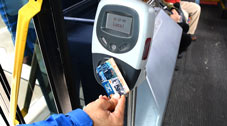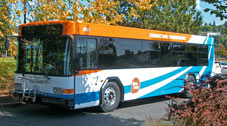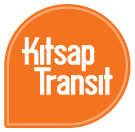LEARN KITSAP TRANSIT
Employer Programs
Employers subject to Washington State’s Commute Trip Reduction (CTR) law must develop and implement a CTR program. The goal of a CTR program is to encourage employees to find alternatives to driving themselves alone to work. Your program will be designed and run by you, and will reflect your industry, region, and organizational culture.
Build your CTR Program
Encourage employees to find alternatives to driving themselves to work.
The Commute Trip Reduction (CTR) Efficiency Act is a state law focused on improving air quality, reducing traffic congestion, and minimizing energy consumption. The Act requires affected worksites to develop employer-based programs that encourage employees to find alternatives to driving alone.
The CTR Efficiency Act applies to all employers, both public (i.e. federal, state and local governments, and the military) and private, that have 100 or more “affected” employees who work at a single worksite. “Affected” employees are those who work 35+ hours a week and are scheduled to begin work between the hours of 6 – 9 a.m. on two or more weekdays for at least twelve continuous months.
Required Employer Program Elements
Employer programs are required to do the following:
- Develop a mix of elements that encourage employees to use commute options
- Appoint an engaged Employee Transportation Coordinator (ETC)
- Ensure the ETC attends Basic ETC Training
- Distribute information quarterly.
- Distribution of information at new hire orientation
- Hold at least one transportation event a year (in-person or virtual)
- Promote the Guaranteed Ride Home program
- Survey employees once every two years: CTR Survey Tool website
- Submit a Program Report once every two years.
Program Reports
Employers located in Kitsap County are required to report on their efforts through a Program Report once every two years (opposite survey years). The report is now managed through the CTR Survey Tool website. Training is provided on how to complete the online Program Report. CLICK HERE to view the training guide.
- Submit a Program Report every two years. (this is also done through the CTR Survey Tool website).

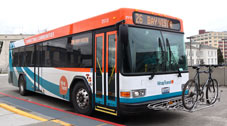 Routed Buses
Routed Buses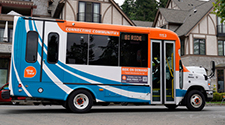 On-Demand/Dial-A-Ride
On-Demand/Dial-A-Ride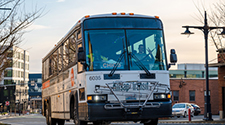 Worker/Driver
Worker/Driver Ferries
Ferries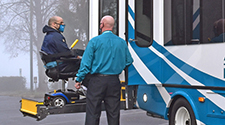 ACCESS & VanLink
ACCESS & VanLink Vanpool, Carpool, SCOOT
Vanpool, Carpool, SCOOT